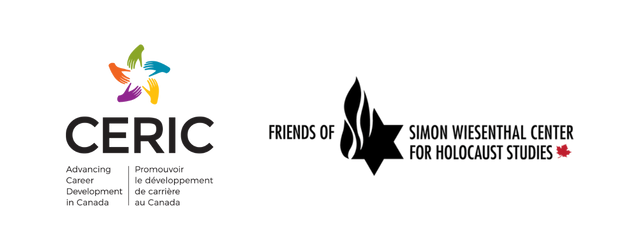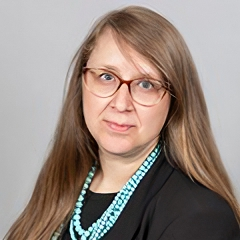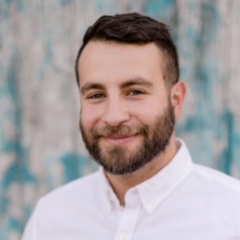Trauma-Informed Career Development: How to Establish Trauma-Wise Spaces in Your Practice
February 24, 2023The CDP’s Roadmap to Effectively Supporting Neurodiverse Clients
March 2, 2023FREE WEBINAR SERIES
Melissa Mikel, Director of Education at Friends of Simon Wiesenthal Center (FSWC) Zach Sadowski, Director of Antisemitism Programming and Outreach at Friends of Simon Wiesenthal Center (FSWC)
12:00 pm – 1:00 pm ET (check your timezone)
|

Overview
Reports from Statistics Canada demonstrate an increase in hate crimes in 2021 (27%), with more hate crimes targeting religion (+67%). Although the national Jewish community constitutes only 1% of the total population, hate crimes against the Jewish community remain the second most common hate crimes reported by police after the Black population. Antisemitism did not begin with the Holocaust, nor did it die with the defeat of Nazism in 1945. Tragically, this type of hate continues to thrive and grow today, with many of the same myths and tropes continuing to be perpetuated. Yet discussions about antisemitism, and awareness of this form of hatred, are often left out of diversity, equity and inclusion training. This three-part series will look at patterns of antisemitism leading to the present day, discussing how to identify this form of hate and suggest ways in which to address it and build allyship strategies in our contemporary world today.
Why Should You Attend
Antisemitism can occur everywhere in our practice, whether at schools or the workplace. As career development practitioners play an important role in empowering their clients in their education and career trajectories, it is crucial to understand and apply an inclusive approach. The purpose of this free webinar series is to educate and build awareness about the topic of antisemitism starting from a historical context to a contemporary reality. The program will lead conversations about naming and calling out antisemitism in an effort to better equip career development practitioners to work toward countering this hate and build allyship between communities. By the end of the series, career development practitioners will better understand the historical roots of antisemitism and the forms in which it takes place in their day-to-day realities and will be able to apply inclusive approaches in their practice to better support their clients and students. All of this work is about valuing diversity and inclusion and using one’s power and privilege to contribute to diversity and inclusion.
Webinar #1: Part I: Antisemitism: Then
Monday, May 1, 12:00 pm - 1:00 pm ET
- Vocabulary as it relates to antisemitism
- Traditional forms of antisemitism, organized in myths and tropes, from a global perspective
- Antisemitism as it relates to the Holocaust
- Post-World-War-II continuation of traditional antisemitism
- Antisemitism from a Canadian perspective
Webinar #2: Part II: Antisemitism: Now
Monday, May 8, 12:00 pm - 1:00 pm ET
- Working definition of antisemitism and its origin with the International Holocaust Remembrance Alliance (IHRA)
- Manifestations of antisemitism from the left to the right of the political spectrum – with a focus on Canadian examples
- Connecting the “new” antisemitism to the traditional myths and tropes introduced in Part I
- Antisemitism in online spaces
Webinar #3: Part III: Antisemitism: Building Allyship in Career Development Practice
Monday, May 15, 12:00 pm - 1:00 pm ET
- Review of key concepts discussed in Parts I & II
- Discussion of allyship strategies that career development practitioners can apply in their work
- Antisemitism case studies which will allow for discussion about applying allyship strategies
| COST | FREE |

Melissa Mikel is the Director of Education at Friends of Simon Wiesenthal Center (FSWC). Her professional training is in education. Melissa has been involved with FSWC in a variety of capacities for the past 13 years, creating and implementing programming for students from elementary school through to university, as well as law enforcement personnel and educators about the Holocaust, genocide, antisemitism and racism. She wrote Harper Collins’ Educator’s Guide for the Canada Reads 2019 winner, By Chance Alone, a memoir written by Holocaust survivor Max Eisen. Melissa’s first MA in the field of education was from the University of Toronto; her second MA, in Holocaust and Genocide Studies, was completed through Gratz College where she is currently pursuing her PhD.

Zach Sadowski is the Director of Antisemitism Programming and Outreach at Friends of Simon Wiesenthal Center (FSWC). He is responsible for workshops that fulfill the mandates of Diversity, Equity, and Inclusion (DEI) and Environmental, Social, and Governance (ESG) programs at businesses of all sizes. Zach’s work also focuses on fostering conversations that challenge participants to think about how they can be an ally to their Jewish colleagues, friends, and to the broader community. Zach also supports FSWC’s broader goal of building a more inclusive and respectful society through workshops and other outreach initiatives.
